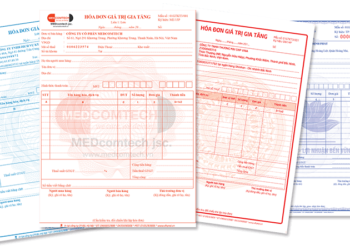Enterprises still have to issue invoices when exporting goods to record revenue and determine tax obligations.
TLT LEGAL LLC – VIETNAM BAR FEDERATION
Legal grounds:
- Decree No. 123/2020/ND-CP;
- Circular No. 38/2015/TT-BTC, amended and supplemented by Circular No. 39/2018/TT-BTC;
- Official Dispatch No. 2054/TCHQ-GSQL dated June 3, 2022 of the General Department of Customs.
We receive the following questions:
My company has goods export activities. I want to ask if foreign customer do not use VAT invoices to declare taxes like in Vietnam, what invoice form should I use to complete export procedures?
Pursuant to Clauses 1 and 2, Article 8 of Decree No. 123/2020/ND-CP as follows:
Article 8. Type of invoice
Invoices specified in this Decree include the following types:
- Value-added invoice is an invoice for organizations declaring value-added tax using the deduction method for the following activities:
- Selling goods and providing services domestically;
- International transport activities;
- Export to non-tariff zones and cases considered as exports;
- Exporting goods and providing services abroad.
- Sales invoices are invoices for organizations and individuals as follows:
- Organizations and individuals declare and calculate value added tax using the direct method used for the following activities:
- Selling goods and providing services domestically;
- International transport activities;
- Export to non-tariff zones and cases considered as exports;
- Exporting goods and providing services abroad.
- Organizations and individuals in the non-tariff zone when selling goods and providing services to the domestic market and when selling goods and providing services between organizations and individuals in the non-tariff zone, exporting goods, providing services abroad, the invoice clearly states “For organizations and individuals in the non-tariff zone”.
According to the above regulations, to serve the declaration of revenue subject to CIT of exported goods, businesses still use invoices as in the case of domestic sales when carrying out export activities. Enterprises base on the method of calculating VAT to use one of the two types of invoices below:
- If applying the deduction method: issue an added value invoice;
- If applying direct method: issue sales invoice.
Pursuant to Point c, Clause 3, Article 13 of Decree No. 123/2020/ND-CP as follows:
Article 13. Application of electronic invoices when selling goods and providing services
3. Regulations on the application of electronic invoices, warehouse delivery notes cum internal transportation, warehouse delivery notes consigned to agents for some specific cases according to management requirements as follows:
c) Businesses that declare and pay value-added tax using the deduction method have exported goods and services (including Businesses processing exported goods) when exporting goods and services use electronic value-added invoice.
When exporting goods for transport to the border gate or to the place where export procedures are carried out, the businesses uses the warehouse delivery note cum internal transport according to regulations as a document for circulation of goods on the market. After completing procedures for exported goods, the businesses issue value-added invoices for exported goods.
In addition, Official Dispatch No. 2054/TCHQ-GSQL dated June 3, 2022 of the General Department of Customs has the following instructions:
According to the provisions of Article 24 of the Customs Law and the provisions of Point b, Clause 1, Article 16, Circular No. 38/2015/TT-BTC dated March 25, 2015, amended and supplemented in Clause 5, Article 1, Circular No. 39 /2018/TT-BTC dated April 20, 2018 of the Ministry of Finance, customs documents for exported goods include commercial invoices or documents of equivalent value in case the buyer must pay for the seller, does not require the issuance of an additional electronic VAT invoice to complete export procedures.
Thus, when carrying out goods export activities, enterprises issue the following invoices:
- When carrying out customs procedures, enterprises issue commercial invoices to carry out customs procedures according to international practices; If the enterprise has issued a VAT invoice or sales invoice, this invoice can be attached to complete customs procedures;
- For businesses that calculate VAT using the deduction method: issue value-added invoices after completing customs procedures;
- For businesses that calculate VAT using the direct method: issue sales invoice at the time of transferring ownership or use rights of goods to the buyer.





